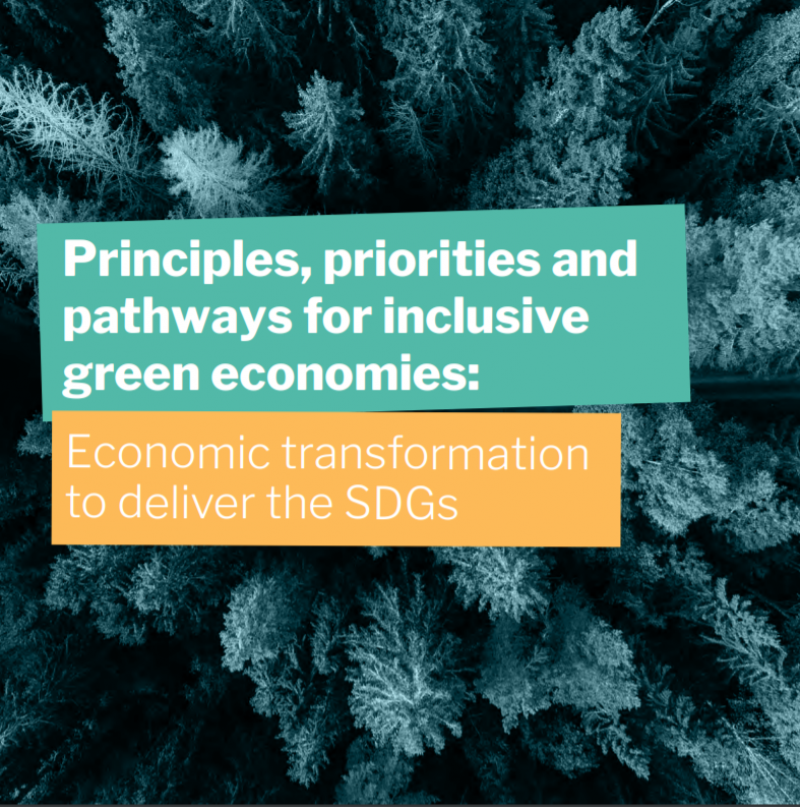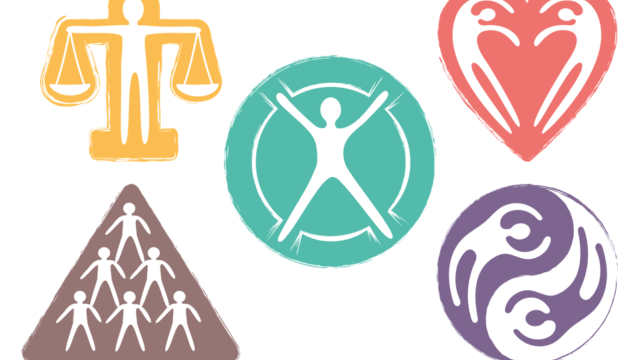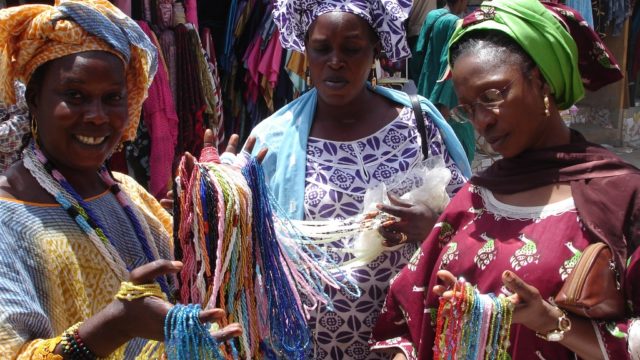Principles, priorities & pathways for inclusive green economies
A landmark roadmap that defines a green & fair economy and how governments, institutions, business & citizens can build one together.

Since the industrial revolution, our economies have delivered huge advances in material prosperity. But this progress is increasingly imperilled by the very economic models which made it possible. Our economies are still measured and managed in ways that incentivise overconsumption, damage nature and social bonds, and drive climate change. In 2015 the global community committed to tackling these linked problems through the Sustainable Development Goals (SDGs) and the Paris Agreement on climate change. This can only be described as historic.
Yet significant economic, societal and institutional changes are now needed if the 2030 commitments and climate goals are to be achieved. When national governments and businesses alike are preparing active responses to the 2030 Agenda, they critically need to get the economics right for sustainable development.
“ Time is running short. We are past pledging and politicking. We are past commitments with little accountability. What’s at stake is life, and society, as the majority of us know it and enjoy it today... It’s clear that we need to transform the way our economies work, and the way we value the things that we consume.”
Since the financial crisis in 2008, several initiatives to reform economic governance have been put forward in response to demands from governments– notably but not only ‘green growth’, ‘decarbonisation’, and ‘green’, ‘blue’ or ‘circular’ economy. This diversity of initiatives has driven valuable innovation and engaged civil society and business as well as government – but to continue a fragmented approach could confuse stakeholders and stymie the systemic progress that is now needed.
Several major institutions working in the field have therefore met several times to share learning and combine efforts. They have now reached a consensus that nothing short of a fast and fair transformation of our economies is needed. The collaborating institutions have co-constructed a three-part framework to offer a coherent way to get to grips with the complexity of transformation towards greener, more equitable and resilient economies. This is not a blueprint, but instead it enables stakeholders to reflect on progress, challenges and current plans, and to co-create a vision and approach that will work well in their context. It comprises:
- Principles: A set of ‘living’ principles to guide collective action towards inclusive green economies
- Priorities: A set of initial catalytic activities that help to embark on and accelerate the transition
- Pathways: A sketch of the kind of medium- to long-term process needed to make the transition
This paper reflects learning, debate and consensus among the ‘Partners for Inclusive Green Economy’, which includes the UN Partnership for Action on Green Economy (UN-PAGE), UN Poverty Environment Action (PEA, successor to the former Poverty Environment Initiative), the Global Green Growth Institute (GGGI), the Green Growth Knowledge Partnership (GGKP), the Organisation for Economic Cooperation and Development (OECD), Deutsche Gesellschaft für Internationale Zusammenarbeit (GIZ), International Institute for Environment and Development (IIED), Development Alternatives India, P4G (former 3GF), and the Green Economy Coalition (GEC). The paper reflects inputs and subsequent discussions of the institutional collaboration group members. While the group has asked GEC to publish this paper in the public interest, the paper does not necessarily reflect the specific and entire policies, commitments or programmes of any one institution or its funding partners.
A special thanks to Steve Bass, Senior Fellow at the International Institute for Environment and Development for developing this paper over the last two years. It is intended as a ‘living document’ and is open for review, ideas and debate. Please contact steve.bass [at] iied.org to contribute.


